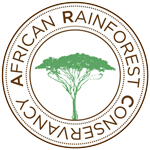Women’s health as a catalyst for conservation
About the Project
In the rural village of Kikomolela, Tanzania, ARC is partnering with community members to build a health clinic that will provide medical services to nearly 2,500 people, one-third of which are children. This village is almost seven kilometers from any other medical center in the area, and has a secondary school, without a school health clinic of its own, that serves five villages. In addition to providing basic health services (treatments for malaria, cholera, TB, measles, STDs, prenatal and antenatal care, childhood immunizations, etc.) the clinic will also provide preventative health lessons and counseling to HIV affected communities. According to Abdallah Yusufu Konde, the Village Executive Officer, a clinic will empower the village to, “take control of our own health care.”
Investing in Health, Investing in Girls
In the developing world, the simple act of opening a health clinic can create the greatest ripple effect for girls and women. When a girl is given the necessary tools to care for herself, she is more likely to wait to have children until she is ready and less likely to contract HIV. If given a healthy start, access to health education and services can lead to the promise of a job and the economic stability to invest in family and community.
Take a look at some of these statistics:
- One girl in seven in developing countries marries before age 15. (Girl Effect)
- Seventy-five percent of 15 to 24 year olds living with HIV in Africa are female. (Girl Effect)
- When women and girls earn income, they reinvest 90 percent of it into their families, as compared to only 30 to 40 percent for a man. (Girl Effect)
- A woman dies every 90 seconds from complications of pregnancy. Ninety percent of deaths are preventable. (Every Mother Counts)
- In sub-Saharan Africa, a woman’s maternal mortality risk is 1 in 30, compared to 1 in 5,600 in developed regions. (UN Millennium Development Goal 5: Improve Maternal health)
Healthy Women, Healthy Villages, Healthy Forests
We’ve been engaging in some exciting conversations lately with New Course – an organization that seeks to “connect women with a global resource support system.” New Course advocates that in developing countries women’s lives, and their role in raising families, revolve around their natural resources, including food, water and energy. Unfortunately, however, they are often left out of the decision-making processes concerning the conservation and management of these resources. New Course seeks to invest in women and girls so that they can become the stewards of their natural resources, playing a pivotal role in conservation and sustainable development. We are currently brainstorming with New Course on ways we can join forces on our broader conservation and community development efforts in Tanzania.
What does this all mean to ARC? We believe that sustainability is holistic and intertwined, and that forest conservation isn’t just about planting trees – it is also about access to healthcare, education, and economic development, and making sure girls and women are including in the conversation. In the case of the Kikomolela clinic project, we hope to spark a cycle of healthy generations of women that can serve as the guardians of the Eastern Arc forests and pass this critical role on to their children.
How You Can Help
Just $10 will produce 50 mud bricks to build the clinic; $30 will provide one household with access to basic health services for one year; and $100 will ensure that one expectant mother has a safe delivery. Learn more and donate to the Kikomolela clinic project. And stay tuned in September for an update from ARC’s Executive Director who will be in Tanzania visiting this project, among others.
We’d also like to turn your attention Christy Turlington Burns, a long time supporter of ARC and powerful advocate of women’s health in developing nations. Her advocacy and mobilization campaign, Every Mother Counts, was established to increase education and support for maternal and child health. Every Mother Counts seeks to engage new audiences to better understand the challenges and the solutions while encouraging them to take action to improve the lives of girls and women worldwide. Christy’s documentary film, “No Woman, No Cry” shares the powerful stories of at-risk pregnant women in four parts of the world with Tanzania being one of the focus countries. You can watch the film trailer here and learn more about the barriers women are facing in Tanzania at everymothercounts.org.
Sources:
Every Mother Counts
Girl Effect
GlobalGiving
New Course
UN Millennium Development




Leave A Comment